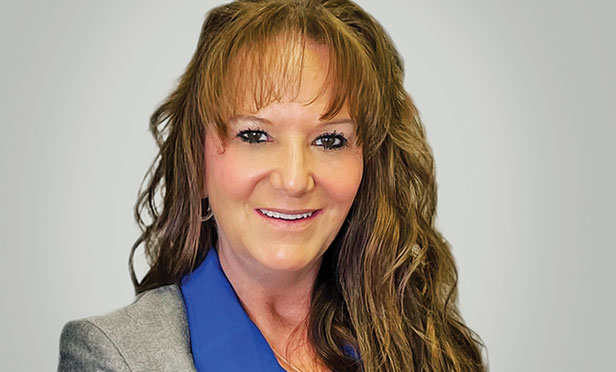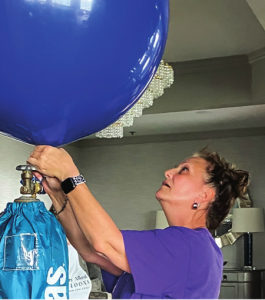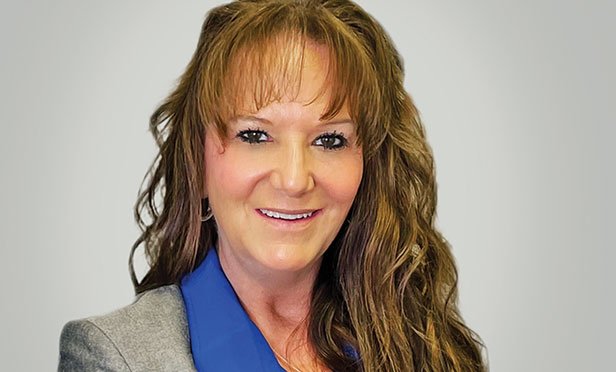[ad_1]
 Tammera Hollerich, CEO/founder, Mirus3
Tammera Hollerich, CEO/founder, Mirus3Tammera Hollerich is the CEO/founder of Mirus3, which provides health and life insurance as well as consulting to individuals and businesses. Healthy Lifestyle Secrets, an on-site corporate wellness and weight-management program is a value-added service of the company that offers personalized nutritional plans for maximum health as well as private consultations and training.
How did you get started in the benefits industry?
I came into the industry when I was in my mid-20s as a secretary for a big Fortune 500 insurance company. I worked in one of their remote offices and quickly realized that it was a very heavily male-dominated industry and that most people who were running the industry were in their mid-50s. The office where I worked was primarily focused on Medicare, and I would get phone calls after these “road warriors” would go out with a stack of leads into a small town and sit in these little old people’s houses until they got that application signed and got the check. The next day, I would get a phone call wanting to cancel it.
Related: Sales zone or Twilight Zone — with Dierdre Van Nest
As that kept happening, I finally looked at the district manager one day and said, “I’m going to go get my license.” He laughed in my face and said, “Sweetheart, you’re doing just fine where you are.” The night before I took the test, I told the district manager that I needed to take the morning off and he said, “If you insist, but you’re not going to pass it so I don’t know why you’re bothering.” Well, I passed with flying colors and got my license. I asked the top sales guy in the office if he would train me, but he didn’t realize that in my head, I was thinking “everything he tells you, do the opposite.”
He and I eventually branched off into our own independent office where I kind of ran the office for him, and that’s where I really got some lessons through hard knocks. I was forced to do things his way. Eventually, it got to the point where I was the one going out and getting all the sales and he would just sign them. I realized one day that that was ridiculous, so I started to build my own relationships and eventually got the nerve to walk away from him.
At the time, HMOs were just coming into prominence here in Texas. You had to get an HMO license and he was never going to do that, so I went and got it on my own. I started selling my own stuff and eventually worked out a deal with Blue Cross Blue Shield and ended up being one of their top 10 salespeople. I was able to support myself and started my own office in 1997. I rented my own little office, had one secretary who helped me and I started building an individual book of business and slowly started working on small-group stuff.
Can you talk about your journey since then?
Around 2004, I hit a crossroads and I wasn’t sure I wanted to stay in the industry. A really good friend of mine in Tampa owned a balloon company and she said, “You just need a break; why don’t you come out here and help me this weekend?” So I did that, came back and decided to start a balloon company in the Dallas/Ft. Worth area while continuing to run my benefits business. I just thought balloons would give me a creative outlet; well now I have one of the two largest balloon decor companies in the DFW market and I have one of the largest agencies serving small and mid-markets.
And now I love benefits, because I know we’re making a huge difference. One of the things I learned early on is that female benefits advisors bring something very unique to the table. Women are often seen as nurturers and caregivers. If you position yourself the right way, you enter a conversation or relationship with a certain level of trust. And with that comes a tremendous amount of responsibility. I tell my staff, who are all women, “We have a responsibility to our community and to these business owners to help them navigate the complexity of an industry they know nothing about.”
We’ve created a set of core values with my staff that we now live and die by every single day. And it all centers around serving our community. So in my journey from being a secretary who no one respected to where we are today as a respected and trusted authority in our market space, I’ve learned to have a “to serve” mentality. It makes a difference.
What are the unique challenges and opportunities in working with these types of employers in your part of the country?
It’s funny, because most people from Texas are loud and proud. We think we’re the best in the nation. I’ve talked to a lot of advisors around the country and I chose to specifically stay and work in Texas and Oklahoma, because I like being close to home. Now, you can Zoom into anything, but that’s been pretty recent since COVID; before that, most people wanted to meet face to face or have you come to their office. I think being from Texas gives me an opportunity over someone who isn’t from here if the company was born and bred in the state.
I also think being a woman in Texas gives me unique opportunities and challenges. I come and clean up a lot of messes because of that trust factor I mentioned earlier. I’ve been doing fee-based consulting work since 2006, so I’ve been having conversations about sitting on their side of the table for years. So being from Texas helps, but I think that as more women have come into this industry, it has become a big advantage when we position ourselves the right way.
What are some of the areas you’re watching when it comes to issues around innovation, cost and quality?
I would say that the pharmacy benefits manager space is an area where there is a lot of room for cost savings. There is a lot of transparency in that area that I am watching closely, because there are so many places to watch and the client often doesn’t know they’re being gouged and spending way more than they need to on the pharmacy side.
The other area we’re watching is single-case agreements—going in and creating them for our groups and cutting out some of the big carriers, even in my fully insured groups. I recently found that in one of my 60-person groups, a member’s baby has been diagnosed with cystic fibrosis. This young mother has no idea what’s coming, but we’re having a lot of conversations in the background with hospitals: “Look, we have a case coming that will be primarily in your hospital; what kind of direct contract can we work out between this group and your hospital? If this whole group uses this hospital, what kind of discounted contracts or rates can we get?” So single-case agreements are really big, along with direct hospital contracts. These are areas where benefits advisors can really help their clients.
It’s obviously harder with fully insured groups, but if I can move a group to level-funded, where we max fund the group and then start looking at direct contracts, that can work really well. Around the time the ACA was being implemented, I remember telling my team, “This is going to be like trying to turn the Titanic when it’s three inches from the iceberg.” We have to have more open conversations. The employers don’t want to have to deal with something that is a huge bottom-line cost for them; they think they just pay the premium and they’re out, but that’s not the case.
We sometimes have an employer who wants to bury their head in the sand and just pass it off to HR, and they don’t understand why they have high turnover. Think about the labor market right now; benefits have become a huge conversation because people are trying to secure top talent in a very competitive market.
How are those conversations about change and innovation going right now with clients and prospects? Are you getting more buy-in?
We’ve been seeing better buy-in over the past few years. I think a lot of that has to do with our approach to employer meetings. I will no longer meet with HR without the CFO or CEO sitting in, as well. I tell the HR representative, “I’m really excited to meet with you, but we’re going to be having some pretty high-level dollar conversations. Are you the one making those decisions?” And they’ll say, “No, that’s so-and-so.” And I say, “Can we invite them to this meeting, too?”
So the ways we’re approaching these conversations now are very different. When we actually get to the employee-level meetings and conversations, those are directed more toward helping them have better quality care. The conversations are usually around guiding them to better quality care, so the buy-in with employees is way better. They don’t want to go to someone who’s going to kill them on the table, so we tell them we can get a medical management team involved that can help get that information because it’s not readily available. You can go out on Yelp and see if a provider has five stars, but that’s not reliable information. We need to get to the right data. Once we get employees to understand that and incentivize the plans to help them make better decisions, the buy-in becomes easy at that point.
You start with some level of steerage, but once they know they can get 100% coverage on a huge bill, they’re on board!
How do you stay motivated and positive while working in a broker and/or rigged system?
I love what I do and I do it with a servant’s heart. I firmly believe in servant leadership so what motivates me is knowing there are brokers out there who are doing it for a paycheck, acting as mercenaries. The end result is often the same, but why you do something does make a difference. We do it to serve those CEOs who have no idea what they’re doing.
What motivates me is knowing there are people out there who started businesses, who have employees, and the advisor they’re working with now is just doing it for a paycheck, for their own selfish gain rather than for the employees or the owner of the business. It’s easy to take advantage of people in this industry, but that’s not who we are and it’s not who I will ever be. One of our big goals is finding employers who are being taken advantage of and becoming their advisor so we can sit on the same side of the table.
What advice would you give to someone who’s new to the industry? Anything you know now you wish you’d known earlier?
I wish I’d had more education rather than doing so much trial by fire. I also wish I’d had a mentor who stepped in and helped me for the right reasons.
I mentor young women who are going into business or who want to start their own businesses. My advice would be to find a good mentor in the industry you’re in or looking to join. And don’t be afraid; I was afraid at times because I’m somewhat of an introvert. I made some mistakes early on that I had to go back and fix. You can’t really do it alone.
How can the industry do a better job of attracting new talent, while becoming more diverse and bringing in young people to keep its momentum going?
I have a lot of thoughts about this. As an industry, we need to take the diverse population we have right now and help them advance into mentorship roles, put them in positions where they can mentor and attract that new diverse world that is out there.
I think it’s important to showcase all the diverse talent that’s already in our industry, as well. If someone sees a female Broker of the Year finalist, for example, they will say, “Oh, this is an industry that has female advisors” and be more attracted to the idea of joining.
It’s also important to have women and diverse talent in senior mentorship positions. Many people think being independent is the goal, but if you go into a psychology course, you’ll learn that intradependence is the highest rung of the ladder. It’s knowing you can’t get through this life alone.
Going into high schools, colleges and business fairs is a great way to let people know more about what our industry is really about. The insurance industry has had a black eye for a long time because the entry level is too low. You don’t need a college degree and you can just go get a license and become an agent. Too often, agents are seen as just one notch above a used car salesman, so people think if they enter our industry they won’t be respected. We have to get out there and change the way we’re perceived. This will attract more of the young and diverse talent out there that is so brilliant.
Finish this sentence: The key to success in this industry going forward is…
Diversity and professionalism. We can’t just keep having the same conversations. We need to elevate our industry. If we keep going down the same path, we’ll get the same results. But I think we’re all a lot better than that.
Read more:
[ad_2]
Source link





